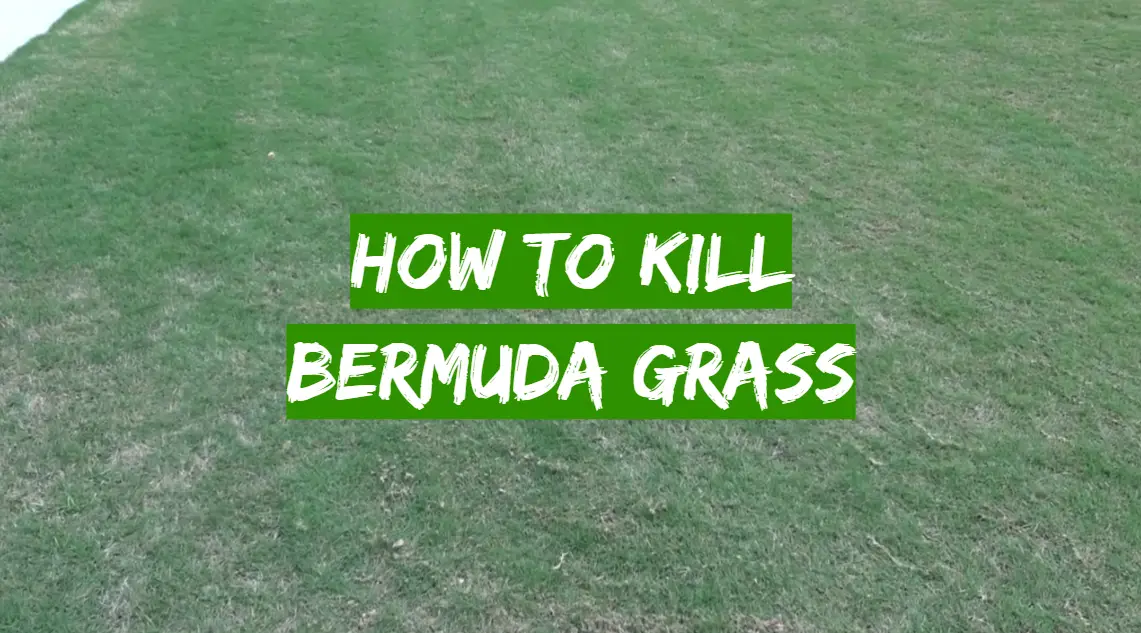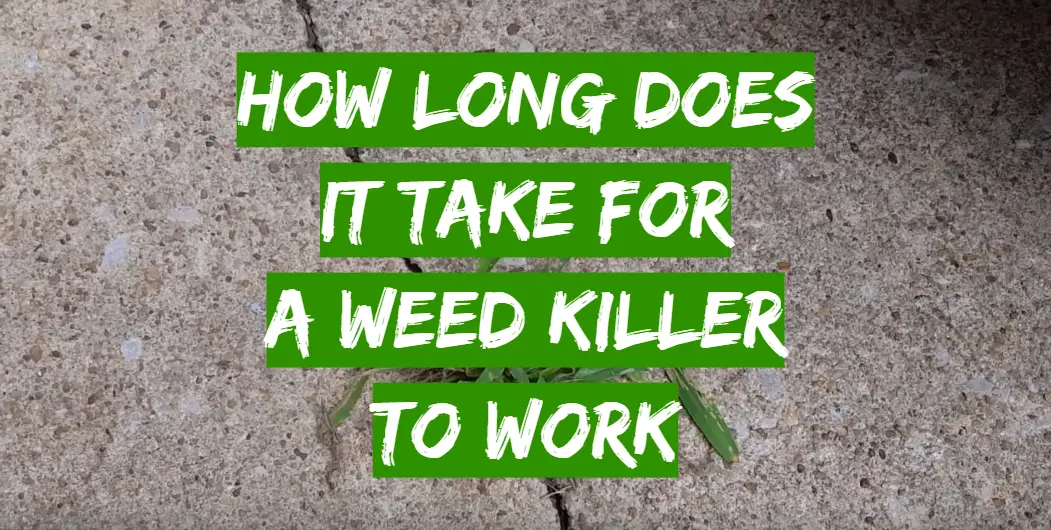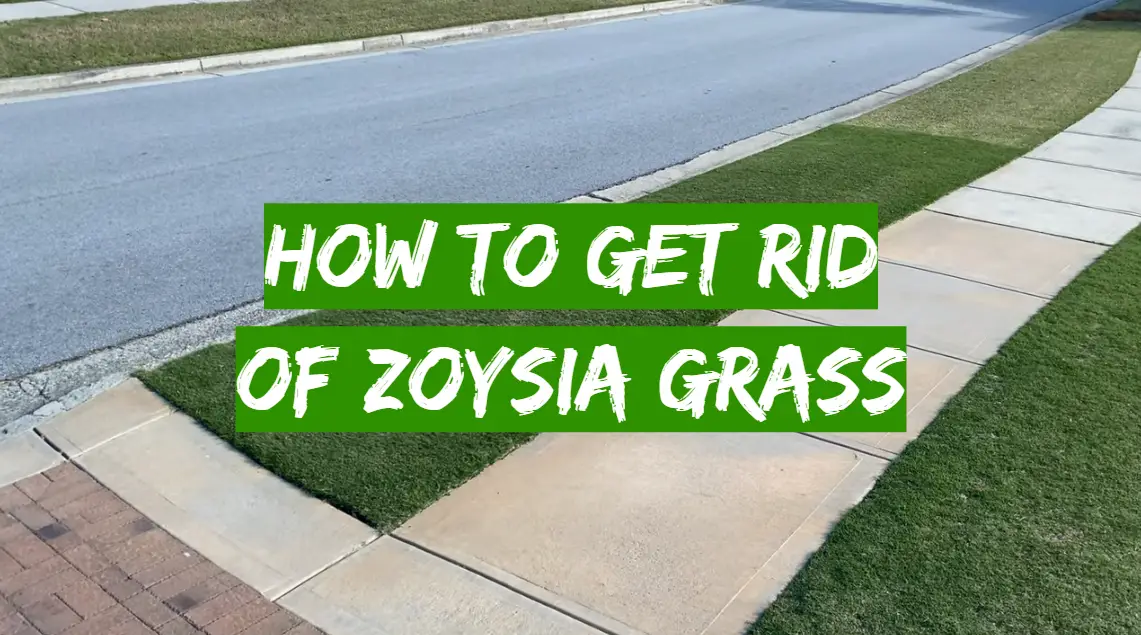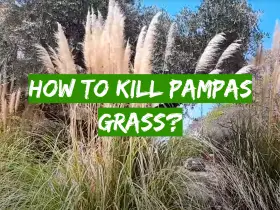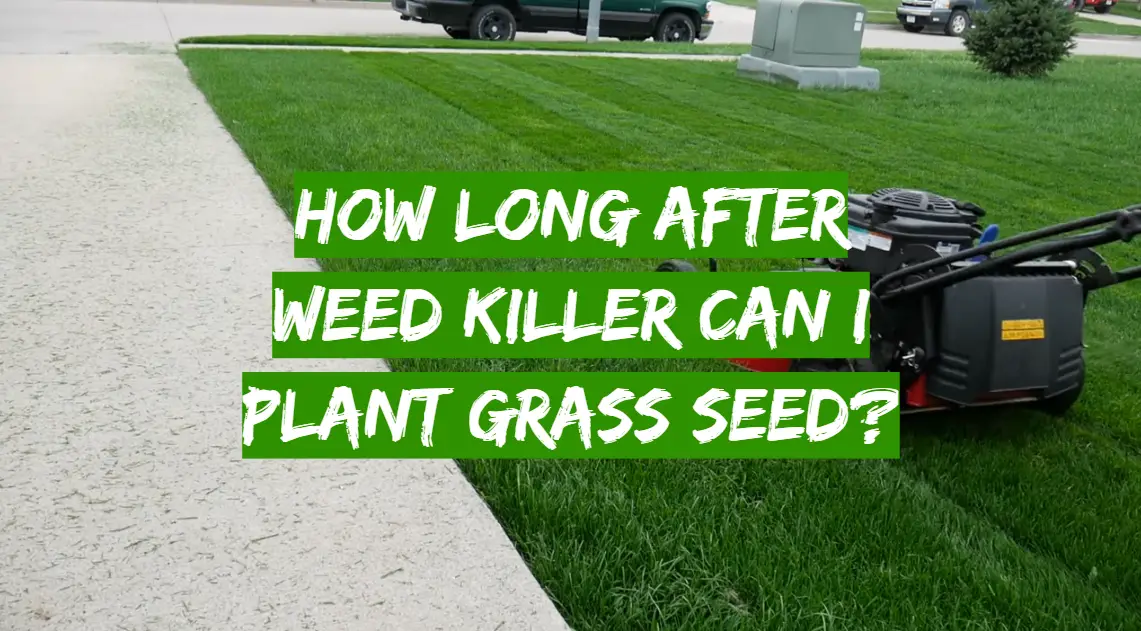Bermuda grass is a drought-resistant weed with a branched root system, which quickly displaces grasses growing nearby. It inhibits the growth of cultivated plants, completely depleting the soil.
The main root mass is deepened by 6-8 inches, it provides food for the weed, even with a critical moisture deficit.
It has numerous nodes, growing in different directions. Each node takes root and quickly forms a green mass. The new shoot of the weed deepens and gives side shoots simultaneously. The shoots germinate above the surface of the soil, turn green, and transform into green foliage.
They spread like lashes along the surface. Then the ends of the lashes again descend into the ground and grow like roots. The first shoots appear from March to May. The length of the roots of one plant per season can grow up to 400 inches, forming dense clusters.
The plant has roots both underground and above the soil. This weed does not care about the composition of the soil. If the soil is well loosened, then the plants reproduce with roots located underground.
Attention!
If the soil is dug up, then the roots of the plant are at a depth of 9 inches, and in the virgin lands – at 7 inches.
Bermuda grass refers to cereal plants and looks like wheatgrass. Its seeds are numerous and remain viable for about 10 years. This drought-resistant weed can grow on any soil, even greasy. But the main accumulation of the weed is observed on the cultivated, irrigated lands of vineyards, farm fields, private gardens.
Important!
In warm climates, the weed propagates by root branches, and in temperate climates (in case of root freezing) – by seeds.
Table of Contents
Damage and benefits
- The harm from the Bermuda grass, like from any weed, is significant. Covering new areas, the plant displaces the rest of the flora. In the garden, the grass absorbs most of the moisture and nutrients from the soil to the detriment of vegetable crops.
- Like any member of the ecosystem, the weed is beneficial. The weed is a valuable forage plant for domestic animals. In hot climates, where many forage species cannot grow due to low drought tolerance, Bermuda grass not only survives but grows well. The plant easily tolerates a flock of animals. It grows quickly and fills empty spaces.
Usage of the plant
- As a summer feed for sheep. It can also be stored for the winter feeding of livestock.
- The weed is ideal for landscaping. It is used for landscaping sports grounds, strengthening slopes, and decorating lawns.
- The roots of the weed have medicinal properties. Tinctures and decoctions are made of them, used for respiratory tract infections as a diuretic.
- The stems contain antiseptic substances – green pulp is used for skin pathologies and cuts.
How to get rid of Bermuda grass in the garden
The measures depend on the extent of the spread of the weed on the site. This plant is one of the most difficult to remove, the root system dies after treatment in 2-3 weeks. If even a small section of the root remains intact, the plant resumes growth and after a certain period of time completely restores the green mass and the root system.
Killing the weed with chemicals
Herbicides are used when the site is severely neglected. The chemical industry offers a large number of chemicals that effectively act on the weed. They are used only as a last resort when other more environmentally friendly methods have not yielded a positive result. Chemicals kill not only weeds but also disrupt the beneficial microflora of the soil.
Attention!
Use chemicals without exceeding the dosage indicated in the instructions.
Bermuda grass is very difficult to get rid of since it is reproduced by pieces of roots that appear in the process of digging the earth. The plant feels good in drought since its roots can be at a depth of about 60 inches. If you have sown rapeseed, beets, white cabbage, other vegetables you can apply herbicide against the weed. It is used throughout the growing season of vegetables and cultivated plants. The weed is sprayed with herbicide before its stems grow up to 6 inches in height. It is recommended to use it only once a season.
Removing Bermuda grass from a garden with folk remedies
Bermuda grass is a species, which loves sunlight. It cannot grow in wet soil without sufficient heat. Seedlings emerge early, and the first shoots show where the weed is growing.
- Black film. The area is watered abundantly and covered with black film. Photosynthesis is impossible without ultraviolet light. The weed gets into an environment completely opposite to biological needs. The root system rots from excess moisture, the upper part turns yellow and the weed dies.
- Kerosene. In the fight against Bermuda grass, kerosene is often used. In the spring, after the germination of the weed, water the plant with kerosene. Repeat the procedure after 12 days. The kerosene will fade away and will not damage vegetable crops.
- Melons and Pumpkins. You can plant melons, watermelon, melon in the place of the main accumulation of Bermuda grass, and in temperate climates – pumpkin. Ground cover crops grow rapidly, shading the weed.
- Pulling out the weed. It is very difficult to get rid of the weed, as it begins to multiply rapidly from the roots, and it is also difficult to dig up the ground due to the growing roots. It is necessary to pull out weeds with roots and loosen the soil. Do it often, but throw away the torn plants, or even better burn them. Otherwise, they will grow in a week. The roots must be removed entirely. Perform the procedure in early spring for the first time, when the roots are still small, and also dig up the soil. Repeat it up in the summer. The main idea is to take away all the roots from the soil.
- Digging with a pitchfork. If you dig up the soil with a shovel, you can chop the roots into pieces and it will be difficult to completely remove them. If a small part of the root remains in the soil, it will germinate. If you dig with a pitchfork, the soil will become loose, and the roots of the weed will be easier to collect.
- Mulching. The soil around useful plants can be covered with the same weeds, torn out of the soil (but certainly without seeds!), cut grass, sawdust, rotted hay, or straw. You can cover the ground with film, cardboard – almost any material that prevents the penetration of light to the soil and prevents the growth of plants. But organic materials are better. They not only interfere with the germination of new weeds but also supply the soil with nutrients, gradually turning into humus. The organic mulch layer must be renewed over time.
- Overseeding “live” mulch. It is good to use some winter cover crops, for example, as furry vetch. Sow it after the planted vegetables are well rooted and grow. In late summer, you can sow oats. Next spring a few days before the next crop planting, the cover crop can be plowed into the soil. Don’t miss the time the cover crop enters the flowering phase, otherwise, it will turn into a weed itself.
Agrotechnical measures against Bermuda grass
In the garden
The main condition is the complete removal of the root so that no parts of it remain in the soil. In early spring, dig up a site to the depth of root growth – use a pitchfork, not a shovel. The latter cuts the root into pieces and they cannot be removed completely. In the fall, when the vegetable garden is left without vegetable crops, deep plowing is carried out and roots are taken away.
Attention!
The remains of the Bermuda grass must be burned or removed from the site.
In the field
If the quantity of Bermuda grass in the field is not impressive, plant cotton there. If the grass has grown a lot, then you can kill it by digging up the soil and planting nothing for a year.
In June and until August 10, the soil is plowed. Layers of soil are placed on the edge so that the roots of the weed dry out, then they are “combed out”. Or, after harvesting the crops, peeling is carried out with the plows 6 inches deep. After 28 days plow the soil again to a depth of 9 inches. Be sure to “comb out” the roots.
In the spring, the roots are “combed out” with spring cultivators and harrows. Then, in May, you have to plow the soil and comb out the roots again. And from June to August, the soil is plowed 4 times 4 inches deep using special tools with sharp plowshares. The roots have to be immediately combed out with heavy harrows.
Tips from experienced gardeners
In the fight against weeds, if the expansion is non-mass, you can use some tricks of experienced gardeners.
- Make a strong solution of caustic soda and water the root in the spring.
- Sprinkle with pork salt. Use approximately 2 pounds per bush.
- Citric acid will stop the growth of the weed. Make a solution of 3 tablespoons of the acid for 1 liter of water. Treat the damaged part of the soil with the solution.
- You can fight weeds with ethyl alcohol diluted in water (1/10). The agent is used to treat the stems and leaves. But this is a temporary measure, only for one season, next year the grass will appear again.
FAQ
What are the dangers of Bermuda grass?
There are several dangers associated with Bermuda grass. First, it is extremely invasive and can quickly take over your lawn or garden. It also has a deep root system that can be difficult to remove, and it can be very difficult to control once it takes over an area. Additionally, Bermuda grass can be poisonous to humans and animals if ingested, so it’s important to be careful around it if you have pets or small children.
What are some tips for preventing Bermuda grass from growing in your yard?
Here are a few tips to help stop Bermuda grass from completely conquering your yard, if you live in an area where it’s prevalent. First, make sure that any cracks or openings in your foundation or sidewalks are sealed so that the grass cannot come up through them. You should also mow your lawn regularly to keep the grass short and prevent it from going to seed. Before Bermuda grass has a chance to spread, you can use herbicides or other chemicals to kill it.
What is the most effective way to kill Bermuda grass?
If you’ve ever tried to get rid of Bermuda grass, you know it can be quite the challenge. There are a number of ways to get rid of Bermuda grass, but the most successful is to use a glyphosate-based herbicide. Glyphosate quickly and effectively kills Bermuda grass without harming other plants or lawn grasses.
How do I permanently kill Bermuda grass?
There are a few alternatives for removing Bermuda grass that are both efficient and permanent. One popular method is using herbicides, which can be either selective or non-selective. Selective herbicides only kill Bermuda grass, whereas non-selective herbicides will damage any plant that comes into touch with them.
Physical removal is another frequent approach to eliminate Bermuda grass. This can be done either by hand or with the use of special tools designed for the task. However, this method is often more time-consuming and labor-intensive than using herbicides.
Does vinegar kill Bermuda grass?
Yes, vinegar is an excellent method of eradicating Bermuda grass. If you’re looking for an organic way to kill the grass in your lawn without harming other plants, vinegar is a great option.
For those wondering how to kill Bermuda grass with vinegar, mix one part vinegar to every two parts water in a spray bottle. Then, simply spray the mixture onto the Bermuda grass you want to kill.
The vinegar will kill the grass within a few days by causing it to dry out. However, it’s important to note that vinegar will also kill any other plants it comes into contact with. Be cautious when applying it, and only spray the Bermuda grass you want to eliminate.
Will Roundup kill Bermuda grass?
Many individuals use Roundup because it is highly efficient in killing Bermuda grass. However, it’s important to note that Roundup will kill any plant that it comes in contact with, so you’ll need to be careful when using it.
To use Roundup, mix it according to the instructions on the label and then apply it to the leaves of the Bermuda grass plant. The herbicide will then work its way down to the roots, killing the plant.
It’s important to note that Roundup can take up to two weeks to kill a Bermuda grass plant, so be patient after you’ve applied it.
How do you kill Bermuda grass naturally?
There are a few natural treatments for Bermuda grass. Another option is to use white vinegar. White vinegar’s acetic acidity will kill any Bermuda grass it comes into contact with. You may either spray white vinegar on the plant directly or around its base.
Salt is another option for killing Bermuda grass naturally. Salt will also cause the plant to wilt by drying it out. You can either sprinkle salt on the plant, or you can pour it around the base of the plant.
Finally, you can cover the Bermuda grass with a tarp or black plastic to block out sunlight. The plant will die as a result of the lack of light.
Will boiling water kill Bermuda grass?
By boiling water, you can quickly and easily kill Bermuda grass. Want to kill patches of grass quickly and easily? Boil a pot of water, then pour it over the areas you want gone. Be careful not to splash any on nearby plants that you don’t want to harm. Repeat this procedure every few days until the grass is dead.
How do you keep Bermuda grass from spreading?
Bermuda grass is a highly adaptable plant that reproduces quickly, making it hard to get rid of once it’s established. It can quickly take over your grass if you’re not cautious. In order to prevent Bermuda grass from spreading, you’ll need to take some action.
First, make sure to mow your lawn regularly. This will help to keep the Bermuda grass from getting too long and starting to seed.
Second, use herbicides carefully. You don’t want to eliminate all of the grass in your yard; instead, you only want to remove the Bermuda grass. Be sure to read the labels on any herbicides you use and follow the directions carefully.
Third, consider using physical barriers. If you have a small area of your yard that you want to keep the Bermuda grass out of, you can use physical barriers like fencing or garden edging.
These are just a few tips to help you keep Bermuda grass from spreading in your yard. By taking some simple precautions, you can easily control this pesky weed and keep your lawn looking great.
Is there a herbicide that only kills Bermuda grass?
Most general herbicides that are sold to consumers will not discriminate between weeds and desirable plants. There are, however, some products on the market that specifically target Bermuda grass. These herbicides usually come in granular form and must be applied with a spreader. Always read and follow the instructions on the product label before using.
Some examples of herbicides that target Bermuda grass include:
- Gordons dichondra and bermuda grass killer
- Hi-Yield Killzall weed and grass killer
- Ortho weed B gon MAX plus crabgrass control lawns fertilizer
Of these products, Southern Ag crossbow is considered to be the most effective at killing Bermuda grass without damaging other plants.
Will borax kill Bermuda grass?
Borax is sometimes recommended as a home cure for Bermuda grass. Unfortunately, while borax may help to kill other types of weeds, it is not effective on Bermuda grass. There are a number of reasons why borax fails to kill Bermuda grass, but the most likely explanation is that the plant is simply too tough and resistant to the herbicide.
Will cardboard kill Bermuda grass?
You might be surprised to know that cardboard can actually be very effective in killing Bermuda grass. All you need to do is cover the area with several layers of wet cardboard, and then top it off with a layer of mulch. The cardboard will block out the sunlight and suffocate the Bermuda grass. This method can take a few weeks to work, but it is very effective.
Conclusion
The weed spreads rapidly, one weed can occupy a significant territory during one season. The plant grows in the mountains, plains, and sandstones. It prefers heat and drought. If it is detected in a timely manner, the fight against Bermuda grass will not be difficult. You can fight this unwanted weed with the above-mentioned methods.

